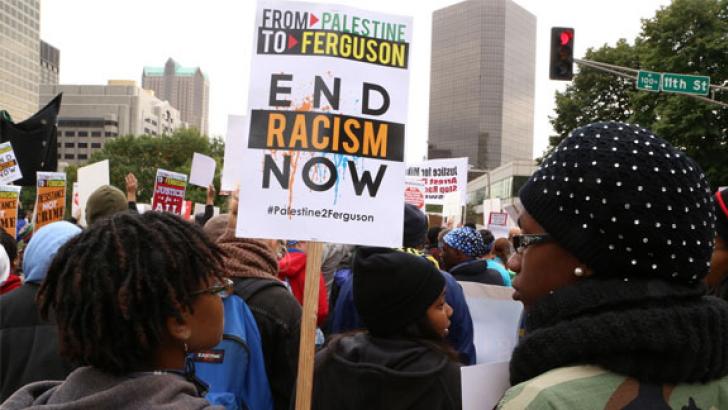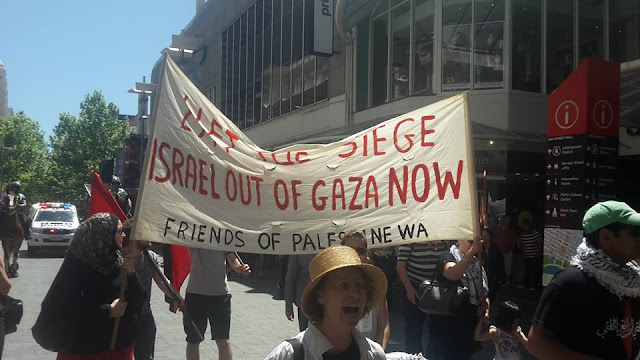Dear friends,
this is the latest update from the Palestinian Health Ministry, translate and published by IMEMC.
in solidarity, Kim
***

Israeli Occupation Forces invade Occupied Nablus, 3 October 2015
October 19, 2015 by IMEMC News
The Palestinian Health Ministry has
reported, Monday, that the number of Palestinians, killed by Israeli
fire since the beginning of this month, has arrived to 45, including 10
children, in addition to a political prisoner who died of medical
neglect.
The
Ministry said the youngest slain Palestinian was 16 months of age, and
that eight of the children were killed in the West Bank, and two in the
Gaza Strip.
It stated that 31 Palestinians have been killed in the occupied West
Bank and Jerusalem, and 14 in the Gaza Strip, including a mother and her
infant, in addition to a young man in the Houra area, in the Negev.
As for wounded Palestinians, the Ministry said 1850 were shot with live
rounds and rubber-coated steel bullets; some suffered burns and others
were beaten and assaulted by soldiers and settlers, while more than 3500
suffered the effects of tear gas inhalation.
410 Palestinians were shot with live rounds, 700 with rubber-coated
steel bullets; 160 were assaulted by soldiers and settlers, and ten
others suffered burns.
290 Palestinians were shot with live rounds in the Gaza Strip, and 70
with rubber-coated steel bullets, while dozens suffered the effects of
tear gas inhalation.
The Ministry stated that the large number of Palestinians shot with live
rounds is a clear indication that the Israeli army resorts to lethal
force against Palestinians.
In addition, soldiers carried out 136 attacks against medical crews
since the beginning of the month, wounding 165 medics, while 39
ambulances were hit with gas bombs and concussion grenades, and the
soldiers also stopped and delayed ambulances 32 times, while trying to
transport, or reach, wounded Palestinians.
The names of those killed by the [Israeli occupation] army in October:
West Bank and Jerusalem:
1. Mohannad Halabi, 19, al-Biereh – Ramallah.
2. Fadi Alloun, 19, Jerusalem.
3. Amjad Hatem al-Jundi, 17, Hebron.
4. Thaer Abu Ghazala, 19, Jerusalem.
5. Abdul-Rahman Obeidallah, 11, Bethlehem.
6. Hotheifa Suleiman, 18, Tulkarem.
7. Wisam Jamal, 20, Jerusalem.
8. Mohammad al-Ja’bari, 19, Hebron.
9. Ahmad Jamal Salah, 20, Jerusalem.
10. Ishaq Badran, 19, Jerusalem.
11. Mohammad Said Ali, 19, Jerusalem.
12. Ibrahim Ahmad Mustafa Awad, 28, Hebron.
13. Ahmad Abedullah Sharakka, 13, Al Jalazoun Refugee camp-Ramallah.
14. Mostafa Al Khateeb, 18, Sur-Baher – Jerusalem.
15. Hassan Khalid Manassra, 15, Jerusalem.
16. Mohamed Nathmie Shamassnah, 22, Kutneh-Jerusalem.
17. Baha’ Elian,22, Jabal Al Mokaber-Jerusalem.
18. Mutaz Ibrahim Zawahra, 27, Bethlehem. Hit with a live bullet in the chest during a demonstration.
19. Ala’ Abu Jammal, 33, Jerusalem.
20. Bassem Bassam Sidr, 17, Hebron.
21. Ahmad Abu Sh’aban, 23, Jerusalem.
22. Ibraheem Dar-Yousif, 46, Al Janyia village Ramallah( Killed while harvesting olives)
23. Fadi Al-Darbi , 30, Jenin – died in Israeli detention camp.
24. Eyad Khalil Al Awawdah, 26, Hebron.
25. Ihab Hannani, 19, Nablus.
26. Fadel al-Qawasmi, 18, Hebron.
27. Mo'taz Ahmad 'Oweisat, 16, Jerusalem.
28. Bayan Abdul-Wahab al-'Oseyli, 16, Hebron
29. Tariq Ziad an-Natsha, 22, Hebron
30. Omar Mohammad al-Faqeeh, 22, from Qotna village.
31. Mohannad al-‘Oqabi, 21, Negev.
32. Hoda Mohammad Darweesh, 65, Jerusalem.
Gaza Strip:
33. Shadi Hussam Doula, 20.
34. Ahmad Abdul-Rahman al-Harbawi, 20.
35. Abed al-Wahidi, 20.
36. Mohammad Hisham al-Roqab, 15.
37. Adnan Mousa Abu ‘Oleyyan, 22.
38. Ziad Nabil Sharaf, 20.
39. Jihad al-‘Obeid, 22.
40. Marwan Hisham Barbakh, 13.
41. Khalil Omar Othman, 15.
42. Nour Rasmie Hassan, 30.
43. Rahaf Yahya Hassan, two years old. -killed along with her mother in an Israeli airstrike
44. Yihya abdul-Qader Farahat, 24.
45. Shawqie Jaber Obed, 37.
46. Mahmoud Hatem Hameeda, 22.















































